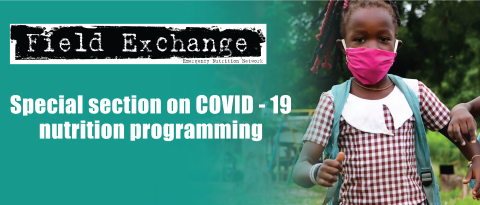Monitoring systems for the management of severe acute malnutrition programmes in northern Nigeria
Research snapshot1
Each year in Nigeria, more than two and a half million children under five years of age are affected by wasting. Since 2016, UNICEF has supported the government in the introduction of a Short Message Service (SMS) for data transmission to support the monitoring of community-based management of acute malnutrition (CMAM) programmes. The SMS system operates in parallel with the traditional paper-based system and transmits data directly from health facilities to federal levels on a weekly basis. In comparison, the paper-based system uses monthly data summaries that are passed through all levels of government. This study undertook contextualised research 2 to assess data quality and performance in both CMAM information systems.
The study adopted a mixed-method approach. Primary data, observations, interviews and the recount of data from outpatient therapeutic programme (OTP) cards were collected in nine health facilities in one northern state in Nigeria, while secondary data was obtained from five states. The accuracy and reliability of CMAM data were deficient to a similar extent in both the paper-based and SMS systems and discrepancies existed between recounted and paper records for admissions, total exits, defaults, deaths and ready to use therapeutic food consumption for the audited month. The large discrepancies in some facilities indicate the loss or removal of OTP cards and the discrepancies in death or default rates can be attributed to inconsistencies between actual treatment practices and national CMAM guidelines, possibly leading to underestimations that give a false impression of good programme performance.
There are several advantages to the SMS reporting system such as fewer intermediate data transfers. However, mobile network coverage is not sufficiently reliable for the SMS system to replace the paper-based system in Nigeria. The study highlights the need for improvements in the design of the CMAM monitoring system, training in and supervision of data management and the communication of results.
1Tuffrey V, Mezger C, Nanama S, Bulti A, Oilsenekwu G, Umar C, Jones E, Namukasa E. Assessment of monitoring systems in the management of severe acute malnutrition in northern Nigeria. BMC Nutr. 2021; 7(2). https://doi.org/10.1186/s40795-020-00405-z.
2Contextualised research based on the PRISMA (Performance of Routine Information System Management) framework


